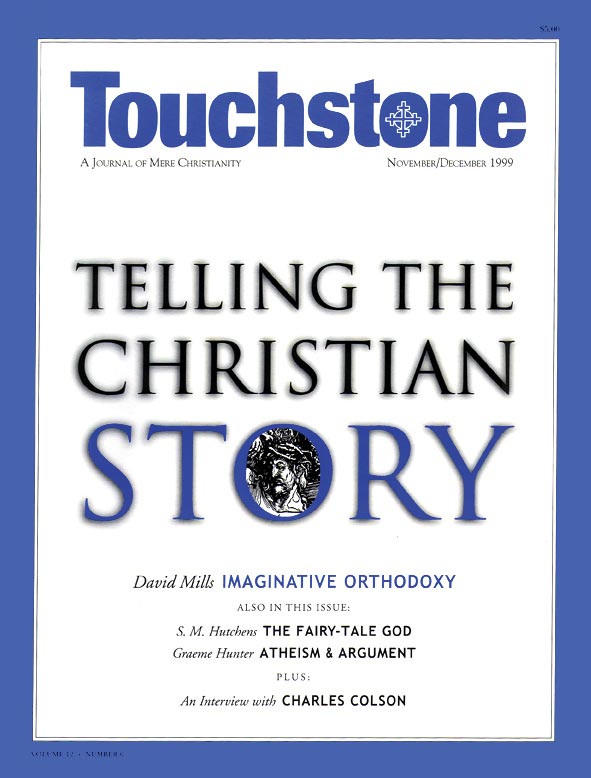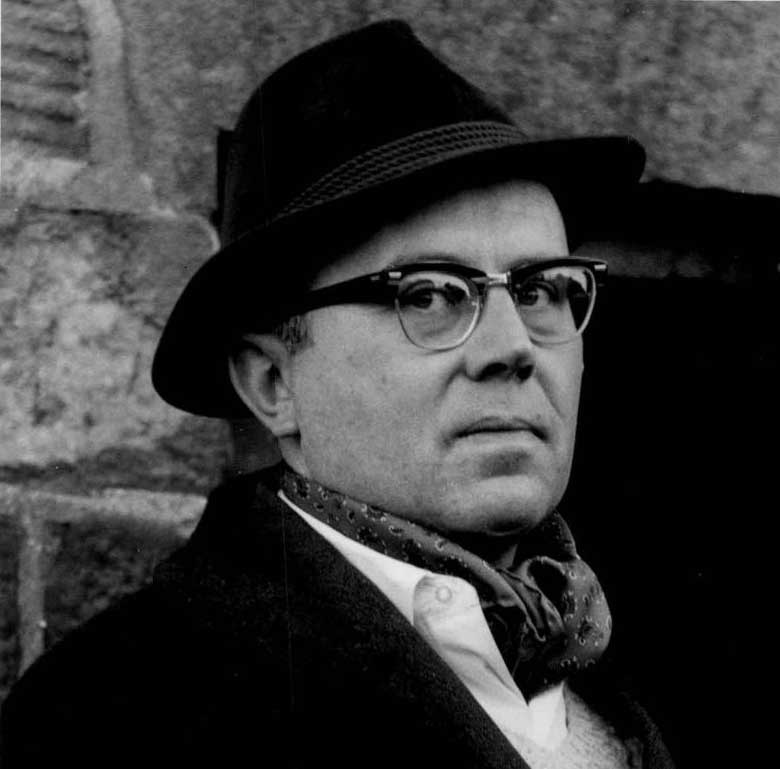Imaginative Orthodoxy
The Art of Telling the Christian Story
by David Mills
Several years ago the founders of a new activist group in the Episcopal Church declared that they represented “dynamic orthodoxy,” by which they intended a not very subtle criticism of a traditional orthodoxy that (they thought) had not moved with the times—with the growth in human knowledge and understanding, and the like.
The group proved to be wholly in favor of the ordination of women, equivocal on homosexuality, and utterly and intentionally silent on abortion. In other words, when orthodoxy as hitherto understood conflicted with the world, especially the academic world from which most of them came, on one matter they sided with the world completely, on another they spoke as if the world might be right, and on a third they did not challenge the world at all.
“Dynamic orthodoxy” meant a limited and circumscribed orthodoxy, which is not really orthodox at all. Orthodoxy must offer the whole truth, and the whole truth said out loud, or it is seriously deformed and defective. The group’s self-advertised dynamism meant that they changed what had before them been considered orthodox Christianity, not that they conveyed it in new ways and with new energy.
Orthodoxy Not Enough
They were, nevertheless, on to something. It is not enough to be orthodox, if that means, as it often does, only an assent to the doctrines of the Creed and such other beliefs as your Church requires, and the willful practice of its disciplines.
Christians need a transformed imagination, an understanding of the world and a vision of the real nature of the cosmos, in which the doctrines find their life and meaning and in which the disciplines find their reason. We need not only to be orthodox, but also to be imaginatively orthodox.
One may know, for example, the Christian teaching on marriage and homosexuality, be able to cite St. Paul and the canons of one’s Church, and may work hard to live chastely and resist temptation. But what animates the belief and the practice, makes them joyful and compelling, is a vision or imagination of romance with its natural limits and risks, of fruitfulness, of the glories of sacrifice and submission, of the pleasures of home, of knowing someone else so well, of being so completely trusted by another.
This vision will better help the Christian resist temptation than the doctrine and the disciplines by themselves. Conveyed to the unbeliever, it will help him understand why the doctrine is true and the disciplines needed. To him, the doctrine alone will appear abstract and the disciplines impractical and unnecessary.
We need to be imaginatively orthodox because we are modern men, living in a Western country marked—whatever high percentage of Americans go to church—by a general commitment to secularism and the assumption that religion is a private, domestic activity of no relevance for public life. In a culture in which nearly every authority, including the Churches themselves, treat Christianity as only one spiritual option among many, believers need a deeply Christian imagination to support and protect their own faith and to show others why it matters.
David Mills has been editor of Touchstone and executive editor of First Things.
bulk subscriptions
Order Touchstone subscriptions in bulk and save $10 per sub! Each subscription includes 6 issues of Touchstone plus full online access to touchstonemag.com—including archives, videos, and pdf downloads of recent issues for only $29.95 each! Great for churches or study groups.
Transactions will be processed on a secure server.
more on Orthodox from the online archives
more from the online archives

31.5—September/October 2018
Errands into the Moral Wilderness
Forms of Christian Family Witness & Renewal by Allan C. Carlson
calling all readers
Please Donate
"There are magazines worth reading but few worth saving . . . Touchstone is just such a magazine."
—Alice von Hildebrand
"Here we do not concede one square millimeter of territory to falsehood, folly, contemporary sentimentality, or fashion. We speak the truth, and let God be our judge. . . . Touchstone is the one committedly Christian conservative journal."
—Anthony Esolen, Touchstone senior editor










